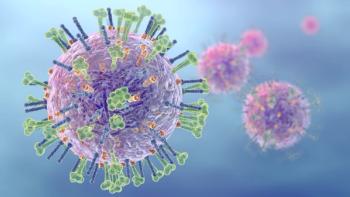
With the end of the national public health emergency for COVID-19 in May 2023, what can be expected as we look ahead to the 2023-2024 influenza season and beyond?

With the end of the national public health emergency for COVID-19 in May 2023, what can be expected as we look ahead to the 2023-2024 influenza season and beyond?

Every pharmacist can make a difference in patients’ lives by taking the time to understand and fulfill the community’s social and cultural needs.

The effectiveness of influenza vaccines varies each season and is determined by the circulating influenza virus subtype(s) and the extent to which there is an antigenic match in the vaccines to the circulating virus subtypes.

Expanding pharmacist–patient care services to include vaccine promotion and administration within ambulatory clinics is an example of the expanding role of pharmacists and their contribution to primary care practice.

Older adults are vulnerable to severe influenza-associated complications and risks, but influenza vaccines may be less effective in this population.

Preliminary estimates from the 2022 to 2023 season suggest that the burden of influenza is returning to a pre-pandemic level.